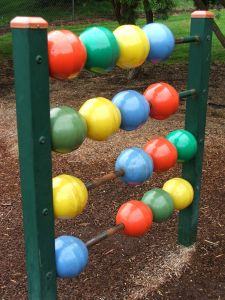You may wonder as you begin to research preschools, what is your child actually supposed to be learning at this age and from this experience? It may surprise you to know that you determine the answer to that question by voting with your preschool fees. There is no real system of accreditation for preschools in the United States. Most certifications have to do with preschool health and safety rather than preschool academics. In addition, the basic curriculum of most preschools is actually taken from kindergarten curriculums.
The two grades cover the same basic material, simply because not all children are required to go to preschool and it would be a problem if they missed out on the material due to differences between the two curricula. This means that preschools are free to bend to the whims of the market and offer some unique educational options.
Is There a Proper Preschool Curriculum?
The Basics of Preschool Learning
The basics of what you can expect a preschool child to learn are broken down by age and level of development.
For two your olds, preschool is a social and physical experience rather than an academic one. At this age:
- Children learn to interact together.
- Children learn to talk and follow cycles of conversation respectfully.
- Children develop muscle control and motor skills by drawing and painting.
- Children work towards independent toilet behaviors.
- Children learn to share.
- Children develop their language skills.
- Children are exposed to written material.
Three year olds in preschool spend time developing during unstructured play and learning more building block skills. At this age:
- Children learn to make friends.
- Children continue to work on writing.
- Children are learning to pick out word sounds and rhymes in preparation for reading.
- Children learn to use numbers for everyday counting.
- Children learn to take out their own toys and supplies and pick up after themselves.
Four year olds are revving up for kindergarten and future academic success. At this age:
- Children are continuing to make progress towards reading skills.
- Children are introduced to handwriting concepts and can visualize letters.
- Children are learning to follow class rules.
- Children are learning to pay attention in class.
- Children are learning to follow directions.
- Children are displaying increased empathy.
- Children are engaging in complex, well-thought-out play.
That is a lot to learn in just three years in a preschool classroom, but it's really just the tip of the academic iceberg. You can find preschools that offer focused academic work designed to give your child a leg up on their education, as well as preschools that focus their attention on language acquisition and immersion. If you want to expose your child to the family faith, then there are preschools that cater to religious education. Whatever you want your child to learn, there is a preschool that will offer that curriculum at an age-appropriate level. For most parents the limiting factor isn't academics, but price.
Teaching Your Preschooler at Home
Whether you choose to send your child to a preschool or not, there are things you can do with them at home to help them be ready for kindergarten. One of the most important things is to make sure your child is potty trained. They won't be able to attend kindergarten unless they can use the toilet. If your child is behind on their potty training, make that a priority.
You can also work on basic reading and counting with your preschooler. Keep things as simple as possible, and keep lessons short. Between lessons, allow your preschooler time to play. If they're learning something specific at school, continue practicing with them at home. Make sure to give them a little break when they first get home!
Teaching social graces is also important. If your child is already learning these in school, reinforce them at home. For example, if your child is expected to share in school, work on that concept with their items at home. Supporting what your child learns in school in their home environment will help normalize it in their lives. It will also help your child understand that you and their teacher share similar expectations for their behavior.
You don't need to invest in expensive tools to help you teach your child at home. Age-appropriate books and educational games are a great place to start. If you want to keep the cost as low as possible, check your local library for their offerings. They may also have educational DVDs that you can borrow for your child, if you don't have access to streaming channels.
Preschool Education in the News
Following the news is a great way to keep up with topics that are relevant to your child's education. Preschool education has been a topic that's received heightened coverage lately, as we consider the long-term effects COVID-19 had on our children's education.
A recent article from ABC News noted that children lost out on about one-third of what they should've learned during the COVID-19 pandemic. Many schools still have not addressed this problem, leaving many students behind academically. These learning deficits are difficult to deal with once they exist; the problem only becomes harder to solve the longer the deficit persists. The ramifications of the pandemic will be felt in America's school system for many years to come.
Teaching your children safety has always been important; that's something that Mom Junction recently chose to highlight with an article on child safety. While your preschoolers learn academics in school, you can teach them street smarts at home. Make sure they know to never accept anything from a stranger or go with a stranger anywhere. If they have access to the internet, make sure you always supervise them. Preschoolers are much too young to know how to avoid online predators; they need you to help protect them.
The image featured at the top of this post is ©Egilshay / freeimages.
